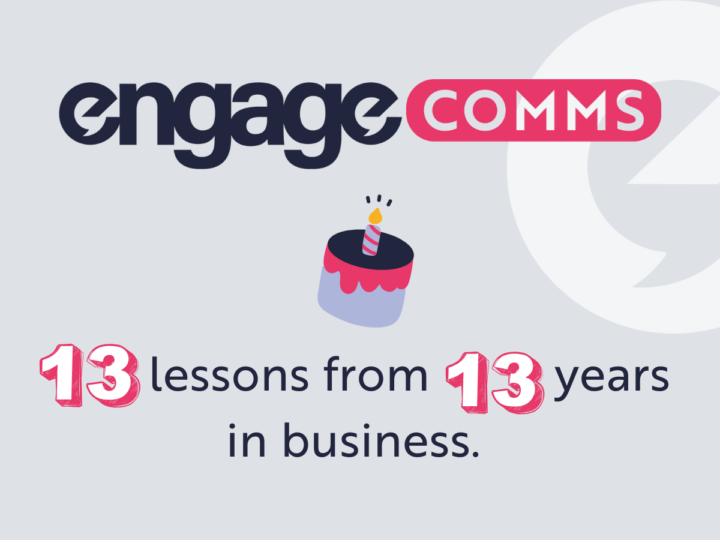I gave a workshop earlier today at the Yorkshire Mafia Festival of Business 2012 on social media policies attended by over 80 senior professionals from across the region. It wasn’t about how to protect corporate reputation with a template ‘rule book’ of what your staff can and can’t do online. It was about empowering and trusting your people to make the most of social media as a business tool.
Unfortunately for me, I had to follow Freeserve founder Rob Wilmot‘s session on ‘How to be a better LinkedIn user’, which pulled a huge crowd. But fortunately for me, Rob laid the foundations for much of what I would be talking about in terms of the business case for embracing social media and weighing the risks against the huge opportunities. His practical examples also showed why it’s so important that people can engage with individuals from within your organisation online, rather than your ‘corporate presence’.
Why do you need a social media policy?
The main reason my talk attracted so many people was because employers are fearful about the risks of their staff using social media. They’ve seen the big gaffes in the media – budget-cutting NHS Chief Execs tweeting “oops, I just bought a yacht” to Dominoes pizza staff filming themselves sticking cheese up their nose – and want to know how to stop their staff doing the same.
Many are creating social media policy ‘rule books’ which attempt to ‘control’ what staff are doing online in and out of work. But with smartphone mobile technology, freedom expression and employee engagement to consider, how on earth do you legislate for this? The truth is, you can’t.
There’s a world out there!
Whether you are engaging with social media on a corporate level or not, your staff are – and so is the rest of the world. You only have to watch the Guardian’s open journalism ‘3 little pigs’ advert to see how little control you can have over the way you and your organisation are presented online. Not being part of the conversation means that you don’t get a say and can’t manage your reputation.
Of course there are many legal, HR and other risks and challenges with staff use of social media. But for forward thinking organisations who want to be fit for the future and continue to grow and succeed in an ever-changing marketplace, the biggest risk is ignoring the power of social media in business!
What are the REAL risks of your staff’s use of social media?
Limiting staff’s use of social media with a ‘rule book’ style policy will
- seriously limit business development, growth and performance
- have a negative impact on employee engagement, morale and talent attraction/retention
- make your organisation seem ‘closed’ and ‘faceless’ and leave you open to criticism
How do you pitch your social media policy to staff?
Many organisations come up with all singing all dancing social media policies that attempt to empower their staff to embrace social media as a business tool – but they end up going over most people’s heads and don’t end up being implemented. What most organisations don’t know is what their staff’s current levels of engagement with social media on a personal and professional level are. We’ve designed a social media engagement survey which helps you gauge staff’s understanding, skills, concerns, perceptions and barriers to embracing social media within appropriate professional boundaries.
You need to make sure that your policy and guidelines are pitched at the right level and everyone is bought into them from the beginning by involving them in the process. You also need to tie it into existing policies and codes of conduct so that use of social media becomes part of everyday business, rather than a ‘fad’. Using ambassadors from within the organisation and practical examples of how they are using it will help bring it to life for those who feel left behind.
The Yorkshire social media policy – keep it simple!
Us Yorkshire folk should be the best at creating social media policies because we like to keep things simple! Social media is partly about experimenting and being open to new opportunities – and it won’t be right for everyone in the organisation, right now. Take baby steps and implement it as and when it is right for your business. In my presentation slides below, you can read a case study of how Chris Allen, Managing Partner of Blacks Solicitors got himself and some of his senior Partners using Twitter as a key business development tool.
My social media policy is written – now what?
Don’t just dump it on the intranet or in a filing cabinet! Find an engaging way of sharing it and embed it in the organisation. Line managers need to support their staff in integrating it into the day-to-day job, even if that means integrating it into their personal objectives at their next appraisal. You also need to use your internal communications channels to keep your staff social media guidelines at front of mind.
We’ve seen some large organisations roll out generic social media training workshops for staff – and they rarely work. Everyone’s use of and interaction with social media will be completely different and they need completely bespoke one-on-one ‘at desk’ training to go through it with them step by step and reassure them of any concerns/pick up on any potential risks and issues.


